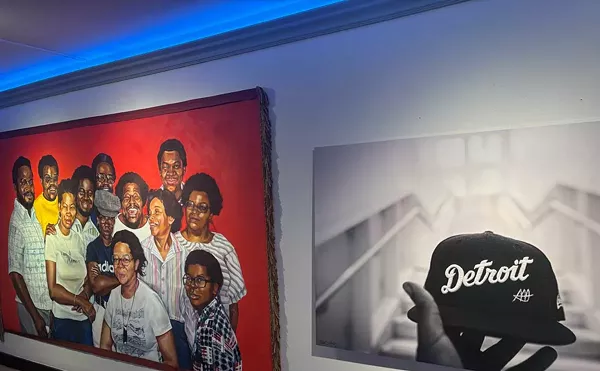
Audio By Carbonatix
[
{
"name": "GPT - Leaderboard - Inline - Content",
"component": "35519556",
"insertPoint": "5th",
"startingPoint": "3",
"requiredCountToDisplay": "3",
"maxInsertions": 100,
"adList": [
{
"adPreset": "LeaderboardInline"
}
]
}
]
Noir fiction started out in mens' adventure magazines and cheap paperback originals — reading matter that travelling salespeople could stuff into a valise on their way out the door. (Although the term "noir" first came into use via French film critics writing about existentially tough post-World War II black-and-white American films. They got the term from the French publisher Gallimard's Serie Noire, a still-running series of translations of American crime novels.)
Carroll John Daly, who Collins credits with having written the first ever "hard-boiled" story in 1922 ("The False Burton Combs), is represented here by "Just Another Stiff," a prime example of how loose and fun the genre can be. Fredric Brown, who is always a pleasure, is represented by "Don't Look Behind You," a playful, almost postmodern mousetrap of a story. Paretsky is a strong contemporary contender with "Grace Notes," a clever family saga that pulls you into a unique, strongly detailed portion of the world. There is even a morbid, EC comics-style tale of Corporate Evil from a writer more associated with the book racks in grocery stores, John Jakes ("No Comment"). Plus, each story is preceded by two paragraphs of biographical and critical summary of the author. What is mostly missing, though, are the stories that used this freewheeling genre to break out into the higher reaches and achieve, dare I say it, poetry.
Rupert Wondolowski writes for the Baltimore City Paper, where this review first appeared. Send comments to letters@metrotimes.com.





